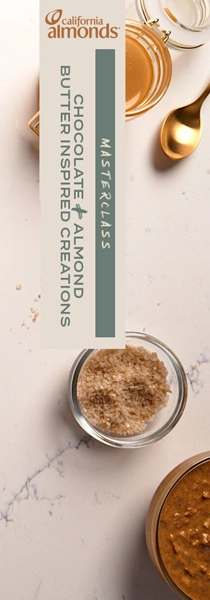
- Industry news
Industry news
- Category news
Category news
- Reports
- Key trends
- Multimedia
- Journal
- Events
- Suppliers
- Home
- Industry news
Industry news
- Category news
Category news
- Reports
- Key trends
- Multimedia
- Events
- Suppliers

25 May 2015 --- This autumn, Dutch potato protein specialist Avebe will open the doors of its new production facility in Gasselternijveen, The Netherlands. The new plant, which was built in response to increased demand for a good vegetable-based alternative to traditional animal protein, will allow Avebe to expand production and stay ahead of demand. Marketing manager Jaap Harkema spoke to FoodIngredientsFirst about where the market for potato protein is heading.

“Our core business at Avebe was, and still is, potato starch,” explains Harkema. “But there is much more value to be extracted from the potato. We developed a way to isolate the protein in a gentle manner that retained the protein’s functionality and nutritional properties.”
Thus a new division was created and over the last seven years the company has worked hard to move the protein technology on and make a product suitable for food applications.
“Potato protein fulfils both a functional and nutritional need for food producers that are looking for a clean label alternative. The fact that the final product is then guaranteed to be ‘free-from’, making it allergen-free, as well as vegan (animal-free), is highly appealing to customers. The added benefit is that the product maintains the functional properties such as gelling, foaming and emulsifying, which differentiates it from other proteins,” emphasized Harkema.
Today’s business has two main focus areas. Some food manufacturers are looking at how to replace their current texturizing capabilities, which may involve gelatin or egg white, for example. Others are looking at new product development and most of the innovation here is in performance and lifestyle nutrition and in “free-from” ranges, such as gluten-free, dairy-free and meat-free, although Harkema does point out that this is now almost mainstream in the marketplace, such is its popularity now.
“We need to supply a product that fulfils all the needs of the traditional texturizing requirements where functionality is very important. Our Solanic200 & 300 range takes care of this market perfectly.
“But we are also in the process of developing the Solanic100, a nutritional fortification product,” says Harkema.
Interestingly, potato protein has a very high protein quality, with essential amino acid content on a par with whey and egg protein, and, according to Harkema, even higher than soy. This makes it desirable to food manufacturers who are seeking to reformulate products or develop new ones that cater to an increasingly demanding and informed consumer.
“Many of the key players in the food industry are looking for alternatives to meat and animal-derived products in the long-term, also driven by the rapidly growing group of ‘flexitarians’,” reveals Harkema. “These are ordinary people who care about animal welfare and want to eat less meat. However, the meat alternatives need to look good and taste good; they are preferably vegan, hence dairy- and egg-free as well.”
“Likewise, certain confectionary manufacturers have continued to replace the gelatin in their sweets with a good plant-based ingredient in order to make it a vegan product. This has been practiced for a while, but it wasn’t necessarily promoted. Tapping into the fact that animal-free appeals to children makes it’s promotion more favorable,” says Harkema.
The trend for healthy aging also comes into play here. People are more active for longer, so they are looking for higher protein alternatives. Protein derived from potato can satisfy these needs.
Harkema also talked about the future.
“Potato is the raw material Avebe is about and our challenge is to find more ways to create value from its components,” he explains. “Starch is not new, but remains the key player and of course we have been targeting the protein market. What’s next? It could be fiber.
“Fiber is attracting increasing attention because people don’t eat enough of it. Potato fiber is mainly used as a functional ingredient, a texturiser, or water binder. But we see a shift from the functional properties, to the nutritional properties, which opens new opportunities, particularly in the bakery/snacks industry and for drinks that could be fortified with fiber.
Of course sustainability will continue to be another key issue in the future. As with many food ingredients manufacturers today, ensuring the final product makes the most of the land it uses and the energy required for production is imperative, and many are now held accountable. For Avebe, this is an easy win. The land and energy footprint of a plant-based product is far more sustainable than an animal product. This makes it very desirable.
“This trend is not just a fad, it is here to stay,” stresses Harkema. “There is a cost impact but that will find its balance because there is just no way back. We have to be more economical with our resources and people have to realize that and make changes. Food companies are in a position to lead the changes by how they source ingredients.”
By Kelly Worgan












